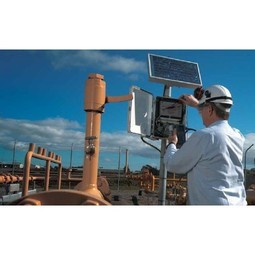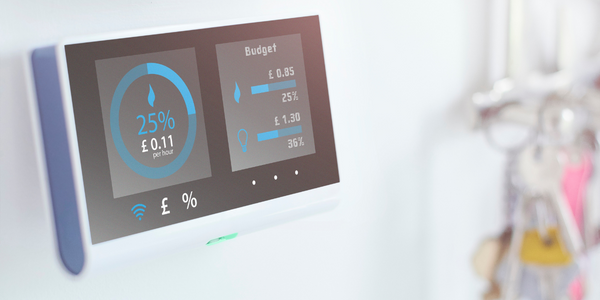Technology Category
- Analytics & Modeling - Real Time Analytics
- Networks & Connectivity - 5G
Applicable Industries
- Transportation
- Utilities
Applicable Functions
- Logistics & Transportation
- Sales & Marketing
Use Cases
- Last Mile Delivery
- Speech Recognition
About The Customer
MrSpeedy is a part of the Dostavista group and is a leading player in the express delivery services industry. The company is one of the most technologically advanced same-day delivery platforms and has a global presence in 11 countries, including Russia, Mexico, Turkey, Brazil, India, South Korea, Indonesia, Philippines, Thailand, Vietnam, and Malaysia. During the Covid-19 pandemic, MrSpeedy faced a unique challenge when the demand for their services grew tenfold overnight due to the Movement Control Order implemented by the Malaysian government. Despite the challenges, the company managed to provide reliable service and constant customer support.
The Challenge
MrSpeedy, a part of the Dostavista group, is a leading player in the same-day delivery service industry with a presence in 11 countries. The company faced a unique challenge during the Coronavirus pandemic when the Malaysian government implemented a Movement Control Order (MCO). This led to a sudden surge in demand for their services as essential services like takeaways, utilities, and groceries became heavily reliant on same-day deliveries. The demand for MrSpeedy's services grew tenfold overnight. The company saw its orders from the food and beverage industry grow from 40% to 70%, with a significant increase in orders for basic essentials. Despite the business opportunity, the sudden increase in demand posed a challenge. With a limited workforce and new safety rules for drivers, MrSpeedy had to ensure reliable service and constant customer support while working remotely.
The Solution
MrSpeedy had been using Infobip’s SMS solution since June 2019, which was a crucial customer service channel for them given the 59% smartphone penetration rate. The SMS API solution enabled them to provide timely verification, account activation, tracking statuses, order confirmations, and delivery notifications to their clients, drivers, and end customers. During the pandemic, the need for round-the-clock support became critical. To meet this need, MrSpeedy added Voice to their communication mix to attend to enquiries from drivers and customers in real-time. This allowed MrSpeedy to provide 24-hour support, scale up quickly in a cost-effective manner, and ensure quick problem resolution and customer support. Infobip’s dedicated customer success manager played a key role in understanding MrSpeedy’s challenge and providing a timely solution with a reliable support team.
Operational Impact
Quantitative Benefit

Case Study missing?
Start adding your own!
Register with your work email and create a new case study profile for your business.
Related Case Studies.

Case Study
IoT Solutions for Smart City | Internet of Things Case Study
There were several challenges faced: It is challenging to build an appliance that can withstand a wide range of voltage fluctuations from as low at 90v to as high as 320v. Since the device would be installed in remote locations, its resilience was of paramount importance. The device would have to deal with poor network coverage and have the ability to store and re-transmit data if networks were not available, which is often the case in rural India. The device could store up to 30 days of data.

Case Study
Automation of the Oguz-Gabala-Baku water pipeline, Azerbaijan
The Oguz-Gabala-Baku water pipeline project dates back to plans from the 1970’s. Baku’s growth was historically driven by the booming oil industry and required the import of drinking water from outside of the city. Before the construction of the pipeline, some 60 percent of the city’s households received water for only a few hours daily. After completion of the project, 75 percent of the two million Baku residents are now served around the clock with potable water, based on World Health Organization (WHO) standards. The 262-kilometer pipeline requires no pumping station, but uses the altitude differences between the Caucasian mountains and the capital to supply 432,000 m³/d to the Ceyranbatan water reservoir. To the people of Baku, the pipeline is “the most important project not only in 2010, but of the last 20 years.”

Case Study
GPRS Mobile Network for Smart Metering
Around the world, the electricity supply industry is turning to ‘smart’ meters to lower costs, reduce emissions and improve the management of customer supplies. Smart meters collect detailed consumption information and using this feedback consumers can better understand their energy usage which in turn enables them to modify their consumption to save money and help to cut carbon emissions. A smart meter can be defined in many ways, but generally includes an element of two-way communication between the household meter and the utility provider to efficiently collect detailed energy usage data. Some implementations include consumer feedback beyond the energy bill to include online web data, SMS text messages or an information display in consumers’ premises. Providing a cost-effective, reliable communications mechanism is one of the most challenging aspects of a smart meter implementation. In New Zealand, the utilities have embraced smart metering and designed cost effective ways for it to be implemented. The New Zealand government has encouraged such a move to smart metering by ensuring the energy legislation is consistent with the delivery of benefits to the consumer while allowing innovation in this area. On the ground, AMS is a leader in the deployment of smart metering and associated services. Several of New Zealand’s energy retailers were looking for smart metering services for their residential and small business customers which will eventually account for over 500,000 meters when the multi-year national deployment program is concluded. To respond to these requirements, AMS needed to put together a solution that included data communications between each meter and the central data collection point and the solution proposed by Vodafone satisfied that requirement.

Case Study
Airport SCADA Systems Improve Service Levels
Modern airports are one of the busiest environments on Earth and rely on process automation equipment to ensure service operators achieve their KPIs. Increasingly airport SCADA systems are being used to control all aspects of the operation and associated facilities. This is because unplanned system downtime can cost dearly, both in terms of reduced revenues and the associated loss of customer satisfaction due to inevitable travel inconvenience and disruption.

Case Study
NB-IoT connected smart meters to improve gas metering in Shenzhen
Shenzhen Gas has a large fleet of existing gas meters, which are installed in a variety of hard to reach locations, such as indoors and underground, meaning that existing communications networks have struggled to maintain connectivity with all meters. The meter success rate is low, data transmissions are so far unstable and power consumption is too high. Against this background, Shenzhen Gas, China Telecom, Huawei, and Goldcard have jointly trialed NB-IoT gas meters to try and solve some of the challenges that the industry faces with today’s smart gas meters.

Case Study
IoT-based Fleet Intelligence Innovation
Speed to market is precious for DRVR, a rapidly growing start-up company. With a business model dependent on reliable mobile data, managers were spending their lives trying to negotiate data roaming deals with mobile network operators in different countries. And, even then, service quality was a constant concern.







